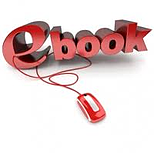
Your favorite inbound marketing consultants have suggested you write an ebook to market your products or services. Now what?
If you are already blogging, which you should be, then look at an ebook like 10 blogs of 500 words each. Each chapter can aproximate the length of a blog. Writing about 5,000 words will be a substantial work that will highlight your expertise.
Before you start writing, though, think through the purpose of your ebook. Clearly you want to generate leads but what kind of leads? If you are targeting prospects who could be new leads, your ebook should help your readers solve a problem or help them with their business. If you are writing for current customers who might buy more from you, tell them about your products and services.
Choose a clear and compelling topic, something people will want to read from beginning to end. One test for clarity is whether you can explain your topic in one sentence. What do your customers want to know that you are an authority to talk about? Do people approach you with the same question time and again? Are there certain topics you blog about that generate more comments? Can you bring something unique to this topic? Your ebook topic should be relevant for at least one year at which point you can write an updated version.
Do an internet search to find out what has already been published on your topic. Give your topic a unique twist.
Next, draft an outline with the main points you want to cover. Each subtopic can be a chapter unto itself. Start writing on the subtopic that you can write most easily about. Write in a professional, concise and clear manner. Include supporting data. Insert a few hyperlinks.
After your first draft, see where you can add keywords. Make sure your prose still flows naturally even after you add your keywords. Do a quick proofread to clean up spelling and grammatical errors then set the draft aside for a week.
After you've had a break from the first draft, do another edit yourself and then have a skilled or professional editor take a look. Ask her or him to look for ways to make the text more concise and clear. French philosopher Diderot wrote to a friend: “I would have written a shorter letter but I didn’t have the time.” Editing prose down to its essence is time consuming but the outcome is worth the effort.
As for the title, craft something unique and catchy that quickly explains the value of your ebook. People love to read documents with the words secrets, tips or tricks in the title. Numbers also grab attention. Try “23 ways to…” Make sure you have one or two keywords in your title for search engine optimization purposes. Test out the title with co-workers.
Design and layout are other critical aspects of creating an ebook people want to read. The design should reflect the look and feel of your brand. Include relevant images from your own design, your photos or stock photos.
Your ebook gives you an opportunity to promote your other relevant offerings. Place links in the text to landing pages for whitepapers, webinars, demos, product trials or consultations.
Finally, promote your ebook. Share it through social media sites like Twitter, Facebook, LinkedIn, Delicious, Digg and Stumbleupon. Send out an email blast about your ebook to your email distribution list. Promote your ebook on your homepage. Put links on every page of your site where it makes sense to do so. Create a landing page for your ebook. Include the title, cover image and a short summary in bullet form. Include a call to action for the download.
Sitting down to write an ebook can seem like a daunting job until you break down the work into individual tasks. You are an expert on your specialty. Share your insights with the world and use your ebook to promote your business artfully.
